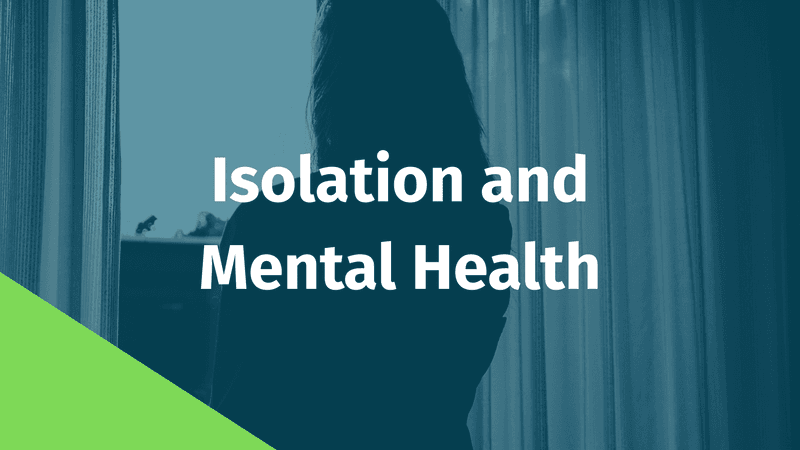Understanding isolation and its role in poor mental health

We all have good and bad days, feel stressed or unwell. Mental health can be just the same. While approximately sixteen million people in the UK will be affected by a mental illness, this can manifest itself in many ways. For some, their mental health may ebb and flow between feeling positive or experiencing struggles while, for others, they may feel unable to carry out day-to-day activities.
Each of us may have different life experiences and, accordingly, have differing methods of dealing with our mental health. However, recognising that support is available is the first step to handling mental health in a positive way.
Regular sleep, exercise and a healthy diet can all contribute to maintaining good mental health and remaining optimistic. However, perhaps the most important thing to remember in difficult times is that you are not alone.
Social isolation is one of the biggest contributors to feelings of depression and anxiety, loneliness and intense negative emotions. It can feel difficult to reach out to others to express your feelings, but simply engaging and having regular contact with like-minded individuals can be an excellent way to feel better about yourself.
At Jordans, we understand that life is not always easy, and this can be a big contributor to having poor mental health. We work regularly with individuals whose experience of physical or sexual abuse has had a lifelong impact, having helped hundreds of clients to feel supported and find closure.
Get in touch with one of our Specialist Abuse Lawyers today at 08009555094 or 03303001103. Our expert team will listen to you with compassion and care, offering confidential advice and helping you to pursue a claim for compensation.